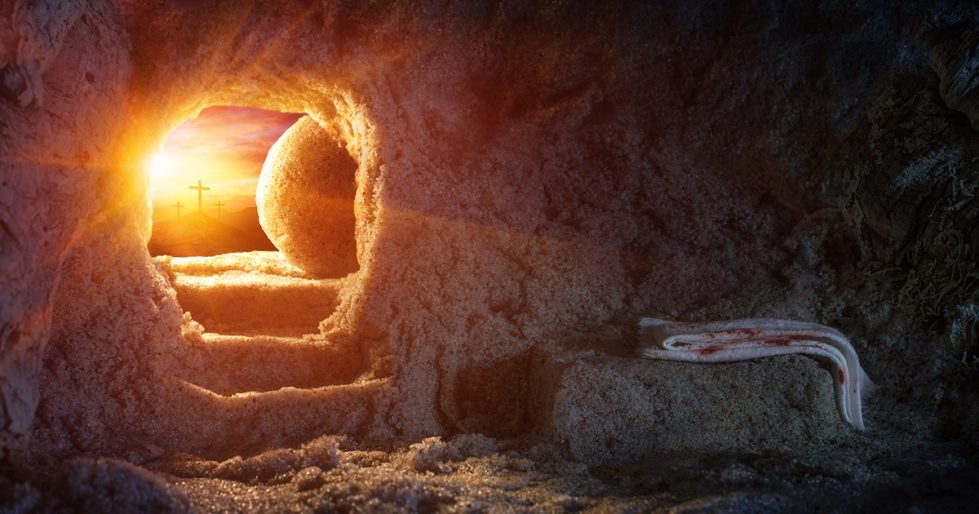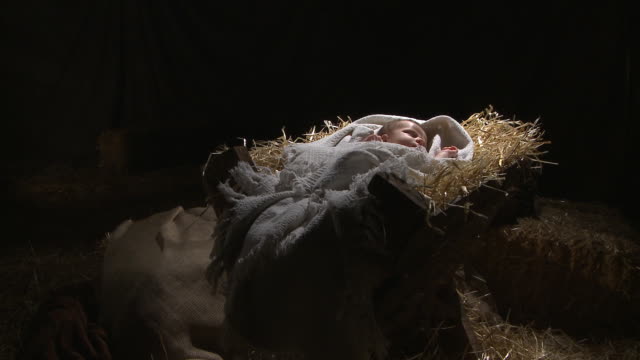Background Passages Lamentations 3:21-26,40; Romans 15:13
If you opened my Bible, you’d find the margins dotted with editorial comments of lessons learned from personal Bible studies and notes taken from sermons preached by my pastors over the years. It is study method I learned from my parents who both taught Sunday School. I watched them make those margin notes and began to follow their lead.
It got me in trouble with my pastor when I was 10 years old. I sat with some other children near the front of the sanctuary listening to the sermon. The pastor said something I thought was significant so I jotted it down in the margin of my Bible, just like my Dad often did.
After the sermon the pastor fussed at me for writing in my Bible. I needed to treat it more reverently, he said. I remember being near tears as he scolded me. I’m pretty sure my Dad had a “come to Jesus” meeting with the pastor after I told him what happened. He had that look in his eye.
Dad just told me to keep taking notes as long I was writing things that I felt like God was teaching me. He said, “I’m quite sure God won’t mind.”
Today, the margins of some books in my Bible are a jumbled mess of handwritten notes and lines drawn from one verse to another. A few books in my Bible are dotted with little more than a scattering of comments notated in the margin.
Lamentations is one of those books. Obviously, I’ve not spent a lot of time in Lamentations and, frankly, not many of my pastors over the years delivered a sermon with Lamentations as its source.
Most Bible scholars believe Jeremiah wrote Lamentations. As a witness to the destruction of Jerusalem and its temple in 586 B.C.E., his grief over Israel’s loss was palatable.
The name of the book in Hebrew is “ekah,” literally “How…,” the characteristic beginning of a funeral dirge. It makes sense as Jeremiah’s sorrow expressed his laments as he witnessed the political and spiritual death of his beloved nation. The word Lamentations derives from the book title as it appears in the Greek Septuagint and the Latin Vulgate translations of the Bible.
A lament is a crying out…a song of sorrow. More than simply crying, a lament is a form of prayer. A conversation with God about the pain you’re experiencing. The hopeful outcome of a lament is trust. A recognition that God hears your sorrow and remains present throughout the experience.
Mark Vroegop, a pastor in Indianapolis, said “Laments turn toward God when sorrow tempts you to run from him.” He said there are four essential elements to a lament. Turning to God by laying your heart at his feet. Sharing your sorrows and fears. It is the moment when a person who is pain chooses to talk to God.
A lament brings a complaint to God and asks boldly for his help in finding a path through the circumstances. Sorrow is when we give in to despair or denial and find no hope. A lament dares to hope in God’s presence and promises.
The final element of a lament is a sense of renewed hope. It is an invitation to renew our trust in God amid the brokenness we feel.
The first verse of Lamentations sets the stage for the prophet’s internal suffering.
How deserted lies the city once so full of people! How like a widow is she who once was great among the nations! (Lamentations 1:1)
Jeremiah’s feelings run downhill from that somber beginning. As you read through the verses, you hear the shock and despair in the prophet’s voice. The devastation he witnessed was real.
To make matter worse, Israel brought this destruction upon itself, by its own rebellion and sin. That’s the burden heard in the prophet’s lament. The author knows that the Babylonians who conquered the people of Israel served as human agents of God’s divine punishment because of the sinfulness of the Hebrew people. It is a bitter pill.
The value of Lamentations to modern day Christians is its underlying belief in God’s redemptive and restoring work in our lives. The hope of a lament recognizes that God is both sovereign and good. Vroegop said lamenting is one of the most “theologically informed things a person can do.”
Life is messy and hard. Most of us have witnessed the destruction of our metaphorical Jerusalem. Circumstances and events don’t turn out as we planned. Relationships fracture as bridges burn in the background. Physical suffering saps our strength. People we love die. The hurt we feel drills deep into our soul.
Under those circumstances it might be far easier to feel embittered and angry. Expressing pain and confusion to God rather than becoming resentful and cynical requires a spiritual strength we can’t always muster. Laying our troubles at the throne of God and asking God repeatedly for his help requires a faith grounded in his word.
After reading through Lamentations this week, I found Jeremiah’s words both instructive and encouraging. Knowing that I can lay the cries of my heart at God’s feet, even when I am responsible for my circumstances, provides a sense of comfort. Hearing the words of hope and promise from Jeremiah’s own heart gives me hope that my cries will be heard.
Jeremiah struggled with the things he witnessed. The destruction. The suffering. The confusion. The judgment that came as God allowed Israel to suffer the consequences of their spiritual rebellion. He detailed his misery in verse after verse until he gets to my favorite verses in the entire book.
This I call to mind and, therefore, I have hope. Because of the Lord’s great love we are not consumed, for his compassions never fail. They are new every morning; great is your faithfulness.
I say to myself: “The Lord is my portion, therefore I will wait for him.” The Lord is good to those whose hope is in him, to the one who seeks him; It is good to wait quietly for the salvation of the Lord. (Lamentations 3:21-26)
Hear the beauty of the passage. That which the prophet remembers gives hope. What he remembers is not all he reported in the previous verses. What gives him hope is the truth he shares next.
He remembers “God’s great love.” Other translations use “God’s steadfast love.” Steadfast suggests something that is firmly fixed or immovable. Something unshakable.
This steadfast love keeps Jeremiah from feeling consumed. With all that happened, every step Jeremiah takes is labored. It would be easy for the prophet to feel as if he hangs precariously at the end of his rope. Unable to go on. God’s unshakable love does not lead him into a dark place that overwhelms, but to a hope that endures. It is the silver lining in the storm clouds over his head.
Jeremiah’s life experience tells him that God’s compassions…his mercies…his grace…never failed him in the past. He sees no reason why they would fail him now, even in this most personal loss.
In the beauty of passage, Jeremiah says that God’s compassion renews every morning. Every new day is a reminder of God’s faithful love and his desire to extend his grace and mercy to all who seek him. God is a faithful and fair even when it is unmerited.
As a result of this understanding, Jeremiah knows God is sufficient in all things….his portion. It allows him to wait, even in his distress, for God to reveal himself…for God to bring an end to the suffering. For God to bring him through. He rests his hope in the promise of God’s goodness, trusting that God will cover him through his sorrow and trouble.
That’s the truth I often need to hear. You can find example after example of God’s extended love, compassion and grace toward those who are hurting in both the Old Testament and the New Testament.
I think the key in this is what Jeremiah says in the beginning of this passage. Do you see it?
“This I call to mind…”
After all the horror and pain he shared from his opening words until this point in Chapter 3, Jeremiah said, “This I call to mind…” or “This I choose to remember…”
What is he calling to mind?
His declaration points forward to God’s great love and mercy. To God’s faithfulness and goodness. To his sufficiency and salvation. This is what he chooses to call to mind.
There isn’t a Christian among us who hasn’t dealt with tears. Our world is broken and brings its own special brand of hardships that we all must bear…believers and non-believers. It often consumes our thoughts. Darkens our spirit. Often our sorrows make us feel we cannot take another step.
It seems the difference is what we choose to remember. What we choose to call to mind. You can dwell on the sorrow or you can dwell on God.
Dealing with the struggles and trouble of life will always be easier when we choose to remember God’s steadfast love and his mercy that renews itself with each new day. When we choose to remember God’s faithfulness instead of dwelling on our sorrow, we will find hope, as Jeremiah did, instead of bitter despair.
I love the truth this teaches. Life’s circumstances may make us feel as if we can’t go on, but God is not done. He is not finished. You will not fail because his love and compassion never fail.
I don’t know where your heart is today. If it is breaking…if it is filled with sorrow and despair. As real as that pain may feel, choose to trust in God’s great love and compassions that renew every morning. Choose to wait on him to work his will in your life. Trust his timing. Choose to remember God’s faithfulness.
As you make that choice, even in the middle of life’s most troublesome times, you will find hope in a Creator God who loves you without reservation.
May the God of hope fill you with all joy and peace as you trust in him, so that you may overflow with hope by the power of the Holy Spirit (Romans 15:13)









